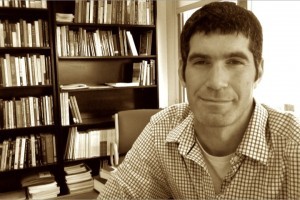[ensemblevideo contentid=MRkLcRIVB0WMF9TLosf-zg audio=true showcaptions=true displayAnnotations=true displayattachments=true audioPreviewImage=true]
What is the relationship between the stories we tell about a city and the “real” history? Stories float from person to person as neighborhoods rise and fall, institutions develop and spread, and natural and manmade events bring gradual or catastrophic change. The media adds an additional layering as it appeals to civic loyalty and commitment in spreading the news.The real history is always somewhere right beyond our grasp, as the competing and conflicting narratives of individuals and institutions reflect a range of motives, from altruistic to selfish to just plain confused. Myths and legends grow up around a city because stories help us establish our connection to spaces and places and fix our personal and communal identity. Often the veracity of stories is less imporant than the feelings they evoke. This is true of Philadelphia, Paris, New York, or any other city.
But how does the historian, the narratologist, the archaeologist tell the difference between the real and the imagined, and what is the relationship between the two? In his new book Myth, Literature, and the Creation of the Topography of Thebes, Professor Daniel Berman attempts to reconstruct the ancient topography of Thebes through two, often conflicting, sources, the ancient literature and the contemporary archaeological record. Thebes, continuously occupied from the Mycenean period to the present day, is the ancient city of Herakles, Dionysus, Oedipus, and Antigone of Greek myth. It was an important dramatic site in Greek epic and lyric poetry, Classical tragedy, and the literature of the Hellenistic period. But behind and layered within mythic Thebes, there is also a very real city that has long experienced the beating pulse of everyday life. As you will learn in this interview, it is hardly a straightforward task to disambiguate the real and the imagined city, as these two elements became entangled so long ago.
I spoke to Daniel Berman on July 22, 2015.
Audio Download (mp3)

